Kevin Styp-Rekowski
Federated Learning for Autoencoder-based Condition Monitoring in the Industrial Internet of Things
Nov 14, 2022Abstract:Enabled by the increasing availability of sensor data monitored from production machinery, condition monitoring and predictive maintenance methods are key pillars for an efficient and robust manufacturing production cycle in the Industrial Internet of Things. The employment of machine learning models to detect and predict deteriorating behavior by analyzing a variety of data collected across several industrial environments shows promising results in recent works, yet also often requires transferring the sensor data to centralized servers located in the cloud. Moreover, although collaborating and sharing knowledge between industry sites yields large benefits, especially in the area of condition monitoring, it is often prohibited due to data privacy issues. To tackle this situation, we propose an Autoencoder-based Federated Learning method utilizing vibration sensor data from rotating machines, that allows for a distributed training on edge devices, located on-premise and close to the monitored machines. Preserving data privacy and at the same time exonerating possibly unreliable network connections of remote sites, our approach enables knowledge transfer across organizational boundaries, without sharing the monitored data. We conducted an evaluation utilizing two real-world datasets as well as multiple testbeds and the results indicate that our method enables a competitive performance compared to previous results, while significantly reducing the resource and network utilization.
Autoencoder-based Condition Monitoring and Anomaly Detection Method for Rotating Machines
Jan 27, 2021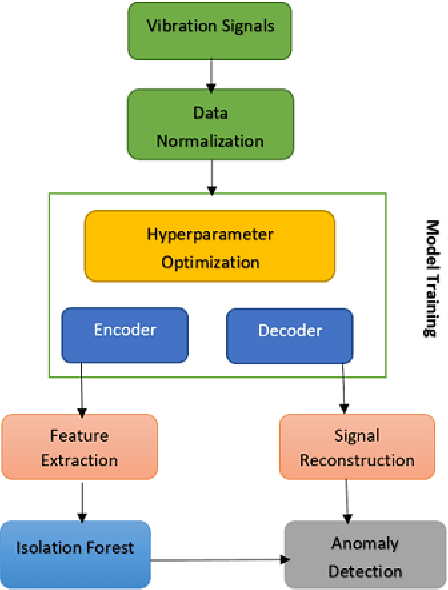
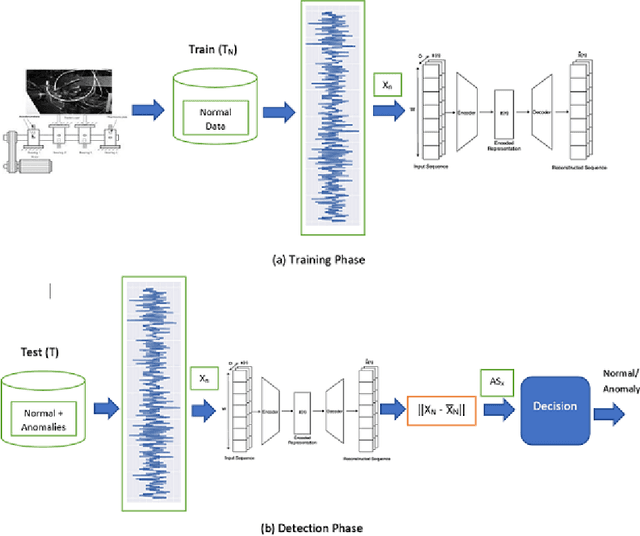
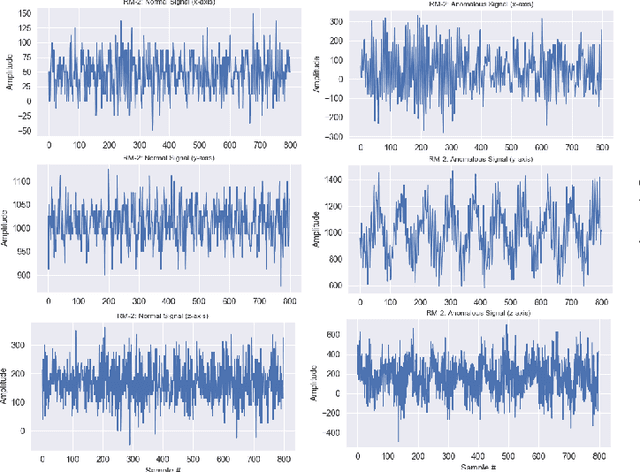
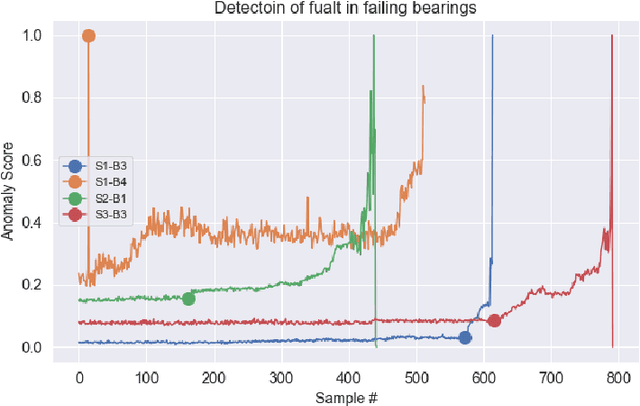
Abstract:Rotating machines like engines, pumps, or turbines are ubiquitous in modern day societies. Their mechanical parts such as electrical engines, rotors, or bearings are the major components and any failure in them may result in their total shutdown. Anomaly detection in such critical systems is very important to monitor the system's health. As the requirement to obtain a dataset from rotating machines where all possible faults are explicitly labeled is difficult to satisfy, we propose a method that focuses on the normal behavior of the machine instead. We propose an autoencoder model-based method for condition monitoring of rotating machines by using an anomaly detection approach. The method learns the characteristics of a rotating machine using the normal vibration signals to model the healthy state of the machine. A threshold-based approach is then applied to the reconstruction error of unseen data, thus enabling the detection of unseen anomalies. The proposed method can directly extract the salient features from raw vibration signals and eliminate the need for manually engineered features. We demonstrate the effectiveness of the proposed method by employing two rotating machine datasets and the quality of the automatically learned features is compared with a set of handcrafted features by training an Isolation Forest model on either of these two sets. Experimental results on two real-world datasets indicate that our proposed solution gives promising results, achieving an average F1-score of 99.6%.
Optimizing Convergence for Iterative Learning of ARIMA for Stationary Time Series
Jan 25, 2021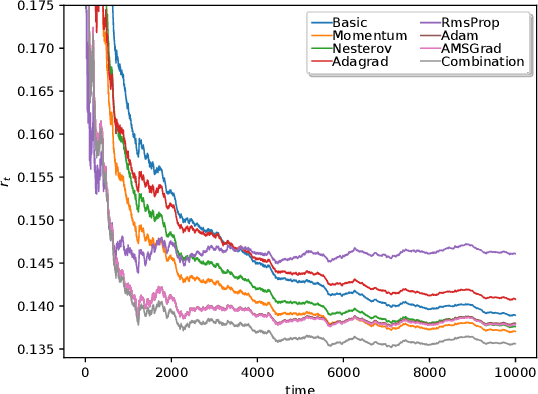
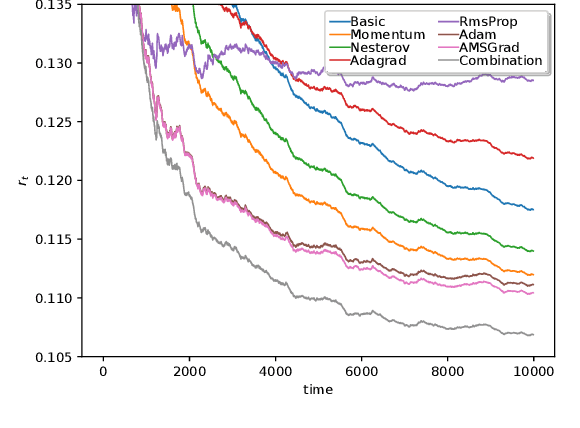
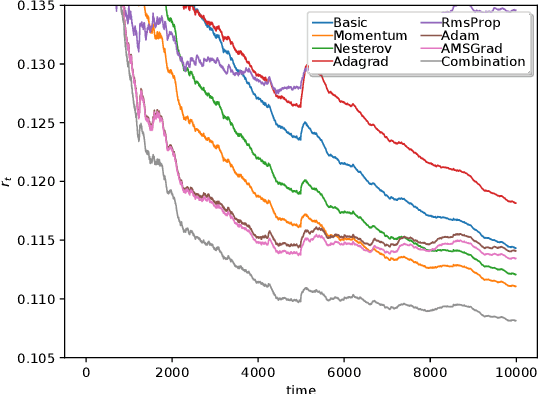
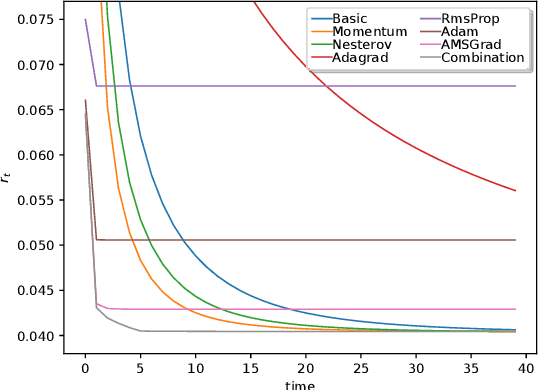
Abstract:Forecasting of time series in continuous systems becomes an increasingly relevant task due to recent developments in IoT and 5G. The popular forecasting model ARIMA is applied to a large variety of applications for decades. An online variant of ARIMA applies the Online Newton Step in order to learn the underlying process of the time series. This optimization method has pitfalls concerning the computational complexity and convergence. Thus, this work focuses on the computational less expensive Online Gradient Descent optimization method, which became popular for learning of neural networks in recent years. For the iterative training of such models, we propose a new approach combining different Online Gradient Descent learners (such as Adam, AMSGrad, Adagrad, Nesterov) to achieve fast convergence. The evaluation on synthetic data and experimental datasets show that the proposed approach outperforms the existing methods resulting in an overall lower prediction error.
 Add to Chrome
Add to Chrome Add to Firefox
Add to Firefox Add to Edge
Add to Edge